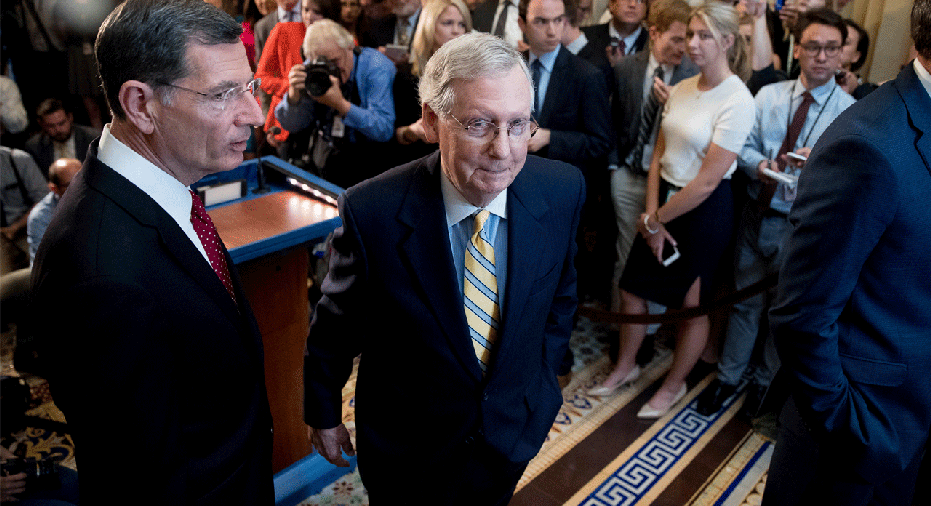ObamaCare repeal: Vote-a-rama, 'skinny repeal' and what comes next

Following hours of debate Wednesday and an unsuccessful attempt at a clean repeal of the Affordable Care Act, President Donald Trump urged Republican lawmakers on Thursday to get their act together on health care.
Come on Republican Senators, you can do it on Healthcare. After 7 years, this is your chance to shine! Don't let the American people down!
— Donald J. Trump (@realDonaldTrump) July 27, 2017
The Senate will attempt to move ahead with a so-called “skinny repeal” approach Thursday, which only removes a select few pieces of the Affordable Care Act. This approach appears to have been adopted as a backup measure, after it was clear the Republican Party was going to have a difficult time reaching a consensus on either a full repeal-and-replace plan or a more complete repeal-only measure.
What’s in the skinny repeal?
The exact details are still being worked out. In a process called vote-a-rama, expected to begin Thursday, lawmakers can propose unlimited amendments to be voted on. This process is expected to last well into Thursday night and possibly Friday morning.
However, it is likely that the skinny repeal will go after what the GOP views as the most unpopular pieces of ObamaCare: namely the taxes and mandates. The employer and individual mandates could both be removed if this narrower approach to ObamaCare repeal were adopted by lawmakers, meaning individuals could opt out of buying health care coverage and certain businesses would be exempt from providing it.
Another target for the skinny repeal would likely be the medical device tax, which is a 2.3% tariff on businesses.
The debate so far
Earlier this week, the GOP narrowly succeeded in approving a motion to proceed to open the health care debate – with Vice President Mike Pence serving as the tie-breaking vote. Republican senators Lisa Murkowski (R-Alaska) and Susan Collins (R-Maine) did not vote in the affirmative.
On Tuesday, Senate Majority Leader Mitch McConnell’s (R-Ky.) plan to repeal and replace the Affordable Care Act was defeated in the Senate by a vote of 57-43.
On Wednesday, a straight repeal, similar to the one that passed Congress in 2015, failed 55-45.
What comes next
If the Republican Party can pass something this week, the Senate would have to work together with the House—which successfully passed the American Health Care Act in May—to reconcile the measures. The two chambers would have to agree on a final piece of legislation that would be put up for another round of voting in each.
The House of Representatives is scheduled to take its August recess beginning next week.



















